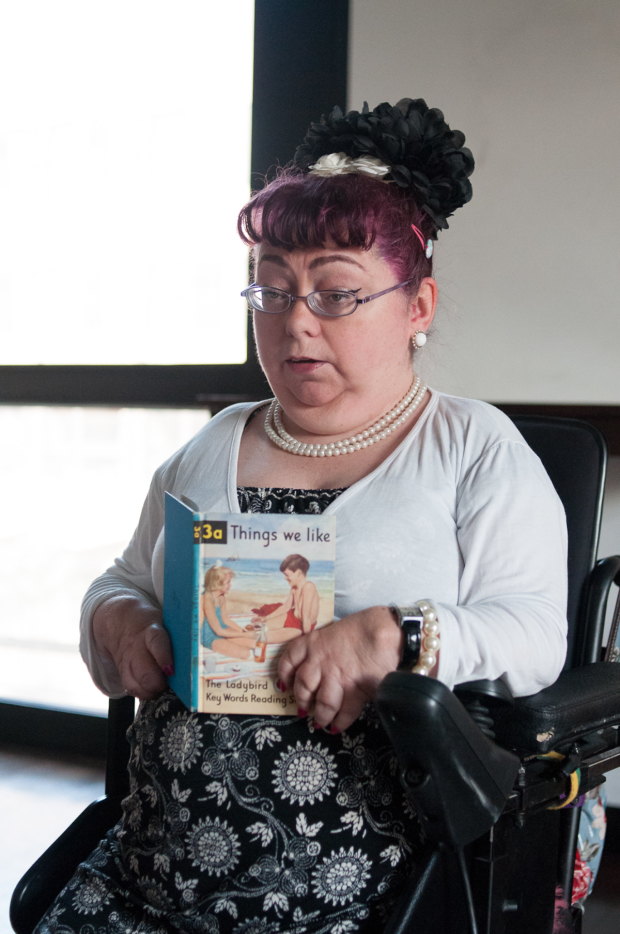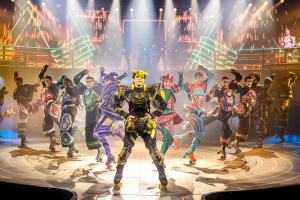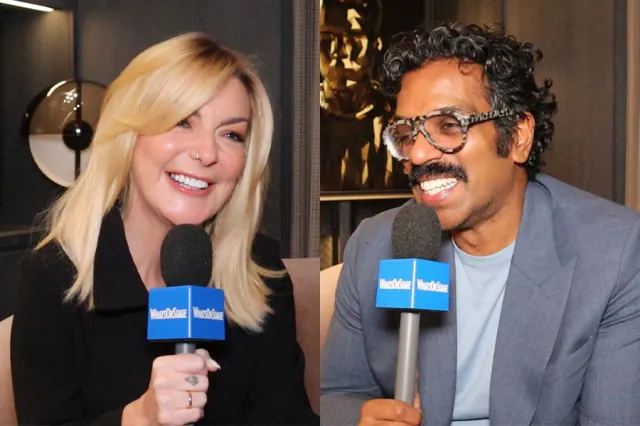Guest blog: Disability in theatre – 'My eyes are sharp for a quantum leap forward'
With UK Disability History Month approaching, Penny Pepper discusses life as a disabled artist

© Fiona Essex
The ramp stretches before me at a scary angle, covering a small flight of stairs. I grit my teeth, push the control on my power wheelchair, surging up as though launching myself. Ironically, my one woman show, Lost in Spaces, begins with sounds of the Apollo 11 moon mission. Using this ramp certainly feels like a lift off, but it gives me access to the stage, to a dressing room – although the luxury of a toilet means going back down the ramp.
A fully accessible performance space is still relatively rare. In my memoir First in the World Somewhere, launched by the publisher Unbound this week, I recall my earlier incarnation performing in my punky folk pop band Spiral Sky in the early 90s. I made it to the stage of the Hackney Empire once, dragged in through a strange back entrance with no real access to anything – and after two hours of no water, just in case I needed the loo – I could scarcely croak a note.
Things have improved since those earliest performance days, when an accessible toilet was not available in the same street, let alone at the venue. But there remains a play off between access, toilet and dressing rooms. As in: you can have one, maybe two, but three? Now you're being cheeky. This did happen with the show at Leicester, Attenborough Arts. A giant sized loo-cum-shower room, decent mirror and not too cold. Now that's equality.
Despite endless initiatives to increase the visibility of disabled actors, whose access needs are not merely about steps, it remains frustrating. When it works, it's marvellous, and the strength of willingness cannot be doubted. I cannot wait for my next show date in Wolverhampton – and who knows, there may even be a lovely dressing room.
UK Disability History Month (UKDHM) starts on 22 November and I'll be doing further performances of Lost in Spaces during that period, as well as promoting the crowd-funding for my book. This year's theme, Portrayal of Disability: Then and Now ties into some aspects in my current work. For an old campaigner like me, my eyes are sharp for a quantum leap forward. We do have a bigger presence on TV and theatre, yet it remains piecemeal.
The topics we are given space to explore remain painfully narrow, we are often urged towards clichés of impairment based triumph over tragedy epics. The Paralympics increased media visibility of disabled people perhaps, but there has also been a polarization with the increase of disability hate crime and paradoxically, the idea of the disabled superhuman.
My own story as a writer and performer has travelled through many of these changes – from being represented in the media in the 90s as a 'crippled singer hitting the high notes', to reviews now that incorporate a genuine analysis of my creative work with a greater understanding of how I examine disability. This is in part because we have reviewers who may be disabled. I stay optimistic – if a little weary.
And with its focus on representation, I hope the many events planned for UKDHM will bring the issues to centre stage, metaphorically and literally.
Penny will perform Lost in Spaces at Wolverhampton Arena on 3 November and at Old Town Hall, Stratford as part of Disability History Month on 21 November. For further information, click here.












